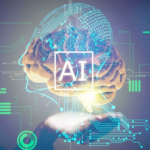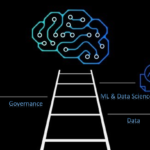The Problem With Suing Gen AI Companies for Copyright Infringement
In recent times, Microsoft’s implementation of OpenAI’s ChatGPT has gained significant popularity, and other tech giants like Google and Apple were taken by surprise due to its advanced generative AI capabilities. As a response to this competitive threat, Google has been actively developing its own generative AI solution called Bard. However, both Google and OpenAI are facing class-action lawsuits alleging copyright violations in relation to the massive amounts of data used to train their AI systems.
The plaintiffs in these lawsuits may not fully comprehend the potential implications to their careers if they succeed in their legal actions. While the repercussions from the involved companies like Microsoft and Google are evident, there is another aspect to consider. The individuals involved in the training process, who may have unknowingly contributed to the data used to train these AI systems, could also face potential lawsuits in the future from others claiming copyright violations.
Let’s delve into the process of how generative AI systems are trained. They learn from vast datasets and patterns, generating inferences and forming a smaller and more anonymized dataset that becomes the foundation for the AI’s operation. This process aims to remove individual contributors from the equation, making it nearly impossible to trace the behavior of the AI back to any specific individual.
For example, if an AI is trained to be a comedian, it would need a dataset of audio and video broadcasts from multiple comedians. Based on audience feedback or the guidance of a training operator, the AI would learn which jokes were funny and which were not, and then generate its comedy routine without relying exclusively on any single contributor’s input.
The critical question that arises is whether the resulting AI-generated content infringes on the copyrights of any of the individuals who unintentionally and without permission contributed to the training dataset.
As of my last update in September 2021, there were no specific reports or cases of such copyright-related lawsuits against generative AI companies. However, the legal landscape can evolve rapidly, and it’s essential for both AI developers and contributors to be aware of potential legal challenges that may arise in the future.
In conclusion, the situation surrounding the use of generative AI and potential copyright violations is complex and remains a subject of ongoing legal scrutiny. As AI technology continues to advance, addressing these legal and ethical considerations will become increasingly important for all parties involved.


































